Manchester United F.C., also known as Man United or simply United, is a professional football club located in Old Trafford, Greater Manchester, England. Founded as Newton Heath LYR Football Club in 1878, they became Manchester United in 1902. They play in the Premier League, the highest level of English football, and are nicknamed the "Red Devils". The club moved to its current home, Old Trafford, in 1910.
January 1902: Winding-up order served
In January 1902, Manchester United was served with a winding-up order due to debts.
April 1902: Manchester United officially born
On 24 April 1902, Manchester United was officially born after investment from local businessmen.
1902: Name change to Manchester United
In 1902, Newton Heath LYR Football Club changed its name to Manchester United.
1902: Ownership Passed to Local Businessmen
In 1902, ownership of the club passed to four local businessmen, including John Henry Davies, who invested £500 to prevent bankruptcy.
1903: Ernest Mangnall assumed managerial duties
In 1903, Ernest Mangnall took over as manager of Manchester United.
1906: Second Division runners-up
In 1906, Manchester United finished as Second Division runners-up and secured promotion to the First Division.
1908: First League Title
In 1908, Manchester United won its first league title.
1910: Move to Old Trafford
In 1910, Manchester United moved to Old Trafford stadium.
1911: First Division Title
In 1911, Manchester United won the First Division for the second time.
1922: Relegation to Second Division
In 1922, Manchester United was relegated to the Second Division.
1925: Promotion to First Division
In 1925, Manchester United regained promotion to the First Division.
October 1927: Death of John Henry Davies
In October 1927, John Henry Davies, a principal benefactor of Manchester United, passed away leading to the club's financial decline.
1927: John Henry Davies' death
After John Henry Davies' death in 1927, the club again faced bankruptcy.
December 1931: James W. Gibson Invests in the Club
In December 1931, James W. Gibson invested in Manchester United and assumed control of the club.
December 1931: Saved from Bankruptcy by James W. Gibson
In December 1931, James W. Gibson saved the club from bankruptcy with a £2,000 investment, assuming control of the club.
1934: All-time Lowest Position
In 1934, Manchester United achieved its all-time lowest position of 20th place in the Second Division.
1937: Another Relegation and Duncan's Resignation
In 1937, Manchester United faced another relegation, leading to Scott Duncan's resignation in November.
1938: Finished 14th in the First Division
In the 1938–39 season, the club finished 14th in the First Division.
October 1945: Matt Busby Appointed Manager
In October 1945, Matt Busby was appointed as the manager of Manchester United.
1945: Matt Busby Appointed Manager
In 1945, Matt Busby was appointed as the manager of Manchester United, building a team that would become known as the Busby Babes.
1947: Second-Place League Finish
In 1947, Manchester United finished second in the league.
1948: Alan Gibson promoted to the board
In 1948, James W. Gibson promoted his son, Alan, to the board.
1948: FA Cup Win
In 1948, Manchester United won the FA Cup under the management of Matt Busby, starting a successful period for the club.
1949: Second-Place League Finish
In 1949, Manchester United finished second in the league.
1952: First Division Title
In 1952, Manchester United won the First Division.
1956: First Division Title
In 1956, Manchester United won the First Division, marking their first of back-to-back league titles.
March 1957: Erection of Floodlights
On 25 March 1957, four 180-foot pylons, each housing 54 individual floodlights, were erected at a cost of £40,000.
1957: Second Consecutive Title
A year after winning their first title since 1967, Manchester United won a second consecutive title alongside the FA Cup - for the first time since 1957.
1957: European Cup Competition
In 1957, Manchester United became the first English team to compete in the European Cup.
February 1958: Munich Air Disaster
On 6 February 1958, the Munich air disaster claimed the lives of 23 people, including eight Manchester United players.
January 1964: Louis Edwards Took Control
In January 1964, Louis Edwards took control of the club after accumulating a 54 per cent shareholding with an investment of approximately £40,000.
1964: Last Player Transfer Between Clubs
In 1964, the last player was transferred between Manchester United and Liverpool.
1965: League Title Win
In 1965, Manchester United won the league title.
1967: League Title Win
In 1967, Manchester United won the league title.
1968: European Cup Win
In 1968, Manchester United became the first English club to win the European Cup, beating Benfica 4–1 in the final.
1968: Manchester United win European Cup
In 1968, Manchester United became the first English club to win the European Cup.
1969: Busby Resignation
In 1969, Matt Busby resigned as manager of Manchester United.
1969: Eighth-Place Finish
In the 1969–70 season, Manchester United finished in eighth place.
1970: Poor Start to the Season
In the 1970–71 season, Manchester United had a poor start, leading to Busby's temporary return as manager.
January 1971: Lillian Gibson's Shares Passed to Alan Gibson
In January 1971, Lillian Gibson's shares passed to Alan Gibson upon her death.
June 1971: Frank O'Farrell appointed manager
In June 1971, Frank O'Farrell was appointed as manager of Manchester United.
December 1972: Tommy Docherty appointed manager
In December 1972, Tommy Docherty was appointed as manager of Manchester United.
1974: Relegation
In 1974, Manchester United was relegated.
1975: Admiral Sportswear Deal
In 1975, Manchester United agreed to a five-year deal with Admiral Sportswear as their kit manufacturer.
1976: FA Cup Final Appearance
In 1976, Manchester United reached the FA Cup final, but were defeated by Southampton.
1977: FA Cup Win and Docherty's Dismissal
In 1977, Manchester United won the FA Cup, but Tommy Docherty was dismissed shortly afterwards.
1977: Dave Sexton replaced Docherty
In the summer of 1977, Dave Sexton replaced Tommy Docherty as manager of Manchester United.
1978: Martin Edwards Acquired Shares
In 1978, Alan Gibson sold a percentage of his shares to Louis Edwards' son, Martin.
1980: Adidas Contract
In 1980, Adidas won the contract to become Manchester United's kit manufacturer.
1980: Martin Edwards Became Chairman
In 1980, Martin Edwards became chairman of Manchester United F.C. upon his father's death.
1981: Dismissal of Dave Sexton
In 1981, Dave Sexton was dismissed as manager of Manchester United.
1982: First Shirt Sponsor
At the beginning of the 1982–83 season, Sharp Electronics became the club's first shirt sponsor in an initial five-year deal worth £500,000.
1984: Robert Maxwell Attempted to Buy the Club
In 1984, media tycoon Robert Maxwell attempted to buy Manchester United but his offer did not meet Edwards' asking price.
1986: Alex Ferguson Arrival
In 1986, Alex Ferguson became the manager of Manchester United.
1987: Dismantling of Floodlights
In 1987, the original floodlight pylons were dismantled and replaced with a new lighting system embedded in the roof of each stand.
1987: Second-Place Finish
In the 1987–88 season, Manchester United finished in second place.
1989: Founding Members of Football League
In 1989, Manchester United Supporters Club Ladies became founding members of the North West Women's Regional Football League.
1989: Sale to Michael Knighton Fell Through
In 1989, Martin Edwards' attempt to sell the club to Michael Knighton for £20 million failed, but Knighton joined the board of directors.
1990: FA Cup Victory
In 1990, Manchester United secured a victory over Crystal Palace in the FA Cup final, saving Ferguson's job.
June 1991: Manchester United Floated on the Stock Market
In June 1991, Manchester United was floated on the stock market, raising £6.7 million.
1991: London Stock Exchange Floatation
In 1991, Manchester United became the second English football club to float on the London Stock Exchange, raising significant capital.
1991: Floated on the London Stock Exchange
In 1991, Manchester United was floated on the London Stock Exchange.
1992: League Cup Win
In 1992, Manchester United beat Nottingham Forest to win the League Cup for the first time.
1992: Umbro Sponsorship (Second Spell)
In 1992, Umbro started a second spell as Manchester United's kit manufacturer.
1993: Premier League Title
In 1993, Manchester United won their first league title since 1967, in the inaugural season of the Premier League.
1993: Capacity Reduced at Old Trafford
In 1993, the Taylor Report's requirement for an all-seater stadium lowered capacity at Old Trafford to around 44,000.
1993: Stretford End Roof Completion
In 1993, the cantilevered roof of the Stretford End was completed in time for the 1993–94 season.
1995: North Stand Redevelopment
In 1995, the North Stand was redeveloped into three tiers, restoring capacity to approximately 55,000.
1995: First English Club to do the Double Twice
In 1995–96, United became the first English club to do the Double twice when they won both competitions again
1995: Second Double
Manchester United won their second Double (winning the Premier League and FA Cup in the same season) in 1995–96, becoming the first club to do so twice.
1996: First English Club to do the Double Twice
In 1995–96, United became the first English club to do the Double twice when they won both competitions again
1998: East and West Stands Expansion
At the end of the 1998–99 season, second tiers were added to the East and West Stands, raising capacity to around 67,000.
1998: Takeover Bid from British Sky Broadcasting Corporation
In 1998, Manchester United received a takeover bid from Rupert Murdoch's British Sky Broadcasting Corporation.
1998: Premier League, FA Cup and UEFA Champions League
In the 1998–99 season, Manchester United became the first team to win the Premier League, FA Cup and UEFA Champions League – "The Treble" – in the same season.
1998: Continental Treble
In the 1998–99 season, under Alex Ferguson, Manchester United became the first team in English football history to achieve the continental treble of the Premier League, FA Cup and UEFA Champions League.
April 1999: British Sky Broadcasting Corporation Takeover Blocked
In April 1999, the Monopolies and Mergers Commission blocked the British Sky Broadcasting Corporation's £623 million takeover bid for Manchester United.
November 1999: Intercontinental Cup Win
In November 1999, Manchester United won the Intercontinental Cup with a 1–0 victory over Palmeiras in Tokyo.
1999: Vodafone Shirt Sponsorship Deal
At the end of the 1999–2000 season, Vodafone agreed a four-year, £30 million deal to become Manchester United's shirt sponsor.
1999: UEFA Champions League Final
In 1999, Manchester United scored late goals to claim a dramatic victory over Bayern Munich in the UEFA Champions League final.
1999: Intercontinental Cup Win
Manchester United became the sole British club to win the Intercontinental Cup in 1999.
2000: Sharp Sponsorship Ends
At the end of the 1999–2000 season, the relationship between Sharp Electronics and Manchester United came to an end.
2001: Official Partnership with Manchester United
In 2001, the Manchester United Supporters Club Ladies made an official partnership with Manchester United, becoming the club's official women's team.
2002: Nike Sponsorship
In 2002, Manchester United and Nike agreed to a £303 million 13-year partnership, where Nike managed the club's merchandising operation.
2002: Alex Ferguson's Challenge
In 2002, former Manchester United manager Alex Ferguson said, "My greatest challenge was knocking Liverpool right off their fucking perch".
2002: Future World Cup Winner
In November 1999, the Red Devils counted on an unexpected goalkeeper fail by future 2002 FIFA World Cup winner Marcos to win the game.
May 2005: Malcolm Glazer Acquired Controlling Interest
In May 2005, Malcolm Glazer acquired a controlling interest in Manchester United through Red Football Ltd, valuing the club at approximately £800 million.
July 2005: Addition of Seats in Quadrants
In July 2005, work began to add 8,000 more seats via second tiers in the north-west and north-east quadrants.
2005: Formation of F.C. United of Manchester
After the Glazer family's takeover in 2005, a group of fans formed a splinter club, F.C. United of Manchester.
2005: Club Taken Private by Malcolm Glazer
In 2005, Manchester United was taken private by American businessman Malcolm Glazer.
2005: Team Disbanded
In 2005, following Malcolm Glazer's takeover, the club was disbanded as it was seen to be "unprofitable".
2005: Highest Commercial Income
In 2005–06, Manchester United consistently enjoyed the highest commercial income of any English club.
March 2006: New Premier League Attendance Record
On 26 March 2006, part of the new seating was used for the first time, resulting in a new Premier League attendance record of 69,070.
May 2006: Completion of Seating Expansion
The seating expansion that began in July 2005 was completed in May 2006, adding 8,000 seats in the north-west and north-east quadrants.
July 2006: Debt Refinancing Package Announced
In July 2006, Manchester United announced a £660 million debt refinancing package, resulting in a 30 per cent reduction in annual interest payments.
September 2006: Most Valuable Sponsorship Deal
In September 2006, AIG's four-year £56.5 million deal with Manchester United became the most valuable sponsorship deal in the world.
March 2007: Peak Attendance Record
On 31 March 2007, a peak attendance record of 76,098 spectators was reached when Manchester United beat Blackburn Rovers 4–1.
June 2007: Club Debts Reached a High
In June 2007, the club's debts reached a high of £777 million.
2008: FIFA Club World Cup Win
In 2008, Manchester United became one of only three British clubs to have won the FIFA Club World Cup.
2009: Seating Reorganisation
In 2009, the reorganisation of seating resulted in a reduction of capacity by 255 to 75,957.
January 2010: Further Refinancing Through Bond Issue
In January 2010, with debts of £716.5 million, Manchester United further refinanced through a bond issue worth £504 million, prompting fan protests.
2010: Aon Principal Sponsor
At the beginning of the 2010–11 season, Aon became the club's principal sponsor in a four-year deal reputed to be worth approximately £80 million.
August 2011: First Training Kit Sponsor
In August 2011, Manchester United announced their first training kit sponsor, DHL, agreeing a four-year deal reported to be worth £40 million.
August 2011: Glazers Prepared for Initial Public Offering
In August 2011, the Glazers prepared for a $1 billion initial public offering (IPO) on the Singapore stock exchange.
2011: Brand Finance Report
In 2011, Brand Finance valued Manchester United's trademarks and associated intellectual property at £412 million.
July 2012: IPO Listed on New York Stock Exchange
In July 2012, Manchester United announced plans to list its IPO on the New York Stock Exchange instead, valuing the club at $2.3 billion.
July 2012: Forbes Ranking
In July 2012, Manchester United was ranked first by Forbes magazine in its list of the ten most valuable sports team brands, valuing the Manchester United brand at $2.23 billion.
July 2012: General Motors Shirt Sponsor
On 30 July 2012, Manchester United signed a seven-year deal with General Motors to replace Aon as the shirt sponsor from the 2014–15 season.
October 2012: Buy Back of DHL Contract
In October 2012, Manchester United bought back the DHL contract for the training kit sponsorship.
2012: Shares Listed on the New York Stock Exchange
From 2012, some shares of Manchester United were listed on the New York Stock Exchange.
2012: League Title Fight
In 2012, Manchester United and Manchester City were fighting for trophies, such as the league title.
2012: Debt Interest and Fees Paid
In 2012, it was estimated that the club had paid over £500 million in debt interest and other fees on behalf of the Glazers.
2012: Public Shares Offered
In 2012, only 10% of shares were offered to the public, with shares having lower voting rights than those retained by the Glazers.
January 2013: Valued at $3 Billion
In January 2013, Manchester United became the first sports team in the world to be valued at $3 billion.
April 2013: Aon Training Kit Sponsorship
In April 2013, the contract for the training kit sponsorship was sold to Aon for a deal worth £180 million over eight years, which also included purchasing the naming rights for the Trafford Training Centre.
2013: Alex Ferguson Retirement
In 2013, Alex Ferguson retired as manager of Manchester United after a long and successful career.
2013: League Title Fight
In 2013, Manchester United and Manchester City were fighting for trophies, such as the league title.
2014: Manchester United Fans Loudest in Premier League
A 2014 study showed that Manchester United had the loudest fans in the Premier League.
2014: Chevrolet Shirt Sponsorship
In 2014, the logo of General Motors brand Chevrolet featured on Manchester United shirts as part of a new $80m-a-year shirt deal.
2015: End of Nike Partnership
In 2015, Manchester United's £303 million 13-year partnership with Nike concluded.
2015: Adidas Kit Manufacturer
Since the start of the 2015–16 season, Adidas has manufactured Manchester United's kit as part of a world-record 10-year deal worth a minimum of £750 million.
2016: Highest-Earning Football Club
For 2016–17, Manchester United was the highest-earning football club in the world.
2016: Won the 2016–17 UEFA Europa League
In 2016, Manchester United won the 2016–17 UEFA Europa League, beating Ajax in the final.
2016: UEFA Europa League Title
In the 2016–17 season, Manchester United, under José Mourinho, won the UEFA Europa League.
February 2017: Bonds Matured
The bonds issued in January 2010 matured on 1 February 2017, with an annual interest payable of approximately £45 million per annum.
June 2017: Forbes List
In June 2017, Manchester United returned to the top of the Forbes list with a valuation of $3.689 billion.
2017: UEFA Europa League Win
In 2017, Manchester United won the 2016–17 UEFA Europa League, beating Ajax in the final.
2018: Kohler Sleeve Sponsor
Ahead of the 2018–19 season, plumbing products manufacturer Kohler became Manchester United's first sleeve sponsor.
2018: New Women's Football Team Formed
In 2018, Manchester United formed a new women's football team, which entered the second division of women's football in England for their debut season.
2019: Glazers Retained Ultimate Control
As of 2019, the Glazers retained ultimate control over Manchester United, with over 70% of shares and even higher voting power.
2019: Third-Most-Valuable Football Club
In 2019, Manchester United was the world's third-most-valuable football club.
2019: Total Sum Paid for Fees Risen
In 2019, it was reported that the total sum paid by the club for fees had risen to £1 billion, with a net debt of nearly £400 million.
2021: TeamViewer Sponsorship
Ahead of the 2021–22 season, Manchester United signed a five-year, £235 million sponsorship deal with TeamViewer.
2021: Planning for Old Trafford Redevelopment Underway
In 2021, United co-chairman Joel Glazer announced that "early-stage planning work" for the redevelopment of Old Trafford was underway, following increasing criticism over the lack of development since 2006.
March 2023: Thomas Zilliacus Publicly Expressed Interest
In March 2023, Finnish entrepreneur Thomas Zilliacus publicly expressed his interest in Manchester United.
July 2023: Social Media Following
As of July 2023, Manchester United has over 82 million Facebook followers, making it the third highest social media following among sports teams worldwide.
December 2023: Ratcliffe Purchased 25 Per Cent of Manchester United
On 24 December 2023, it was announced that Ratcliffe had purchased 25 per cent of Manchester United, with Ineos Sport taking control of football operations.
2023: Snapdragon Sponsorship
At the end of the 2023–24 season, TeamViewer were replaced by Snapdragon, who agreed a deal worth more than £60 million a year to become the club's main sponsor.
2023: FA Cup Finals
In 2023, Manchester United and Manchester City played consecutive FA Cup finals.
August 2024: Snapdragon Deal Extension
In August 2024, Snapdragon's parent company Qualcomm triggered an option to extend the deal by two years, taking it through to 2029.
November 2024: Fans Favor New Stadium Build
In November 2024, a survey revealed that the majority of fans are in favour of a new-build stadium rather than redevelopment of the current stadium.
December 2024: Ratcliffe's Shareholdings Increased to 28.94%
In December 2024, Ratcliffe's shareholdings in Manchester United F.C. increased to 28.94%.
2024: FA Cup Finals
In 2024, Manchester United and Manchester City played consecutive FA Cup finals.
March 2025: Launch of Jewish Supporters’ Club
In March 2025, Manchester United F.C. officially launched its first Jewish Supporters’ Club to deepen connections with Jewish fans.
March 2025: Welcoming the Stretford Sikhs Supporters' Club
In March 2025, Manchester United welcomed the Stretford Sikhs, a non-geographic official supporters' club for Sikh fans and allies around the world.
March 2025: Foster and Partners Retained for New Stadium Construction
On 11 March 2025, Manchester United announced that it had retained Foster and Partners to construct a new, 100,000-capacity stadium adjacent to Old Trafford.
2029: End of Snapdragon Deal
Snapdragon's partnership will continue through 2029.
2035: New Stadium Considered for Women's World Cup
In 2035, the new stadium, planned to be built, is under consideration as a host venue for the 2035 FIFA Women's World Cup.
Mentioned in this timeline
Adidas AG is a German multinational corporation the largest sportswear...
Facebook is a social media and networking service created in...
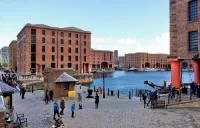
Liverpool is a port city and metropolitan borough located in...
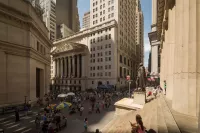
The stock market serves as a platform where buyers and...
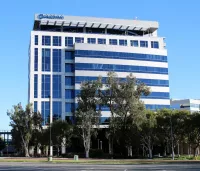
Qualcomm is a multinational corporation specializing in semiconductors software and...

Football encompasses a variety of team sports centered on kicking...
Trending
28 days ago Jeremiah Smith and Ohio State Buckeyes Earn Multiple Midseason All-American Awards
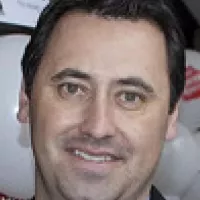
Steve Sarkisian is an American football coach currently serving as the head coach at the University of Texas at Austin...

8 months ago AJ Dybantsa Dunks on Angel Reese, Highlights McDonald's All American Game Roster
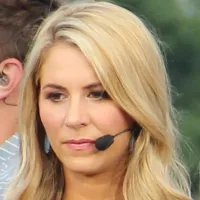
3 minutes ago ESPN Warns Laura Rutledge: Stop Promoting Solitaire App on Air, Sources Say
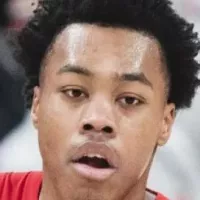
8 days ago Scottie Barnes shines as a defender and offensive weapon for the Raptors.
Makai Lemon is an American college football wide receiver. He currently plays for the USC Trojans.
Popular
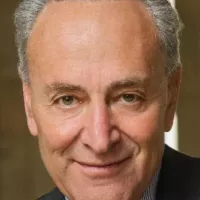
Chuck Schumer is the senior United States Senator from New...

Bernie Sanders is a prominent American politician currently serving as...
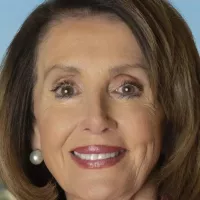
Nancy Pelosi is a prominent American politician notably serving as...

Candace Owens is an American political commentator and author known...
Nicholas J Fuentes is a far-right political commentator and activist...

XXXTentacion born Jahseh Dwayne Ricardo Onfroy was a controversial yet...